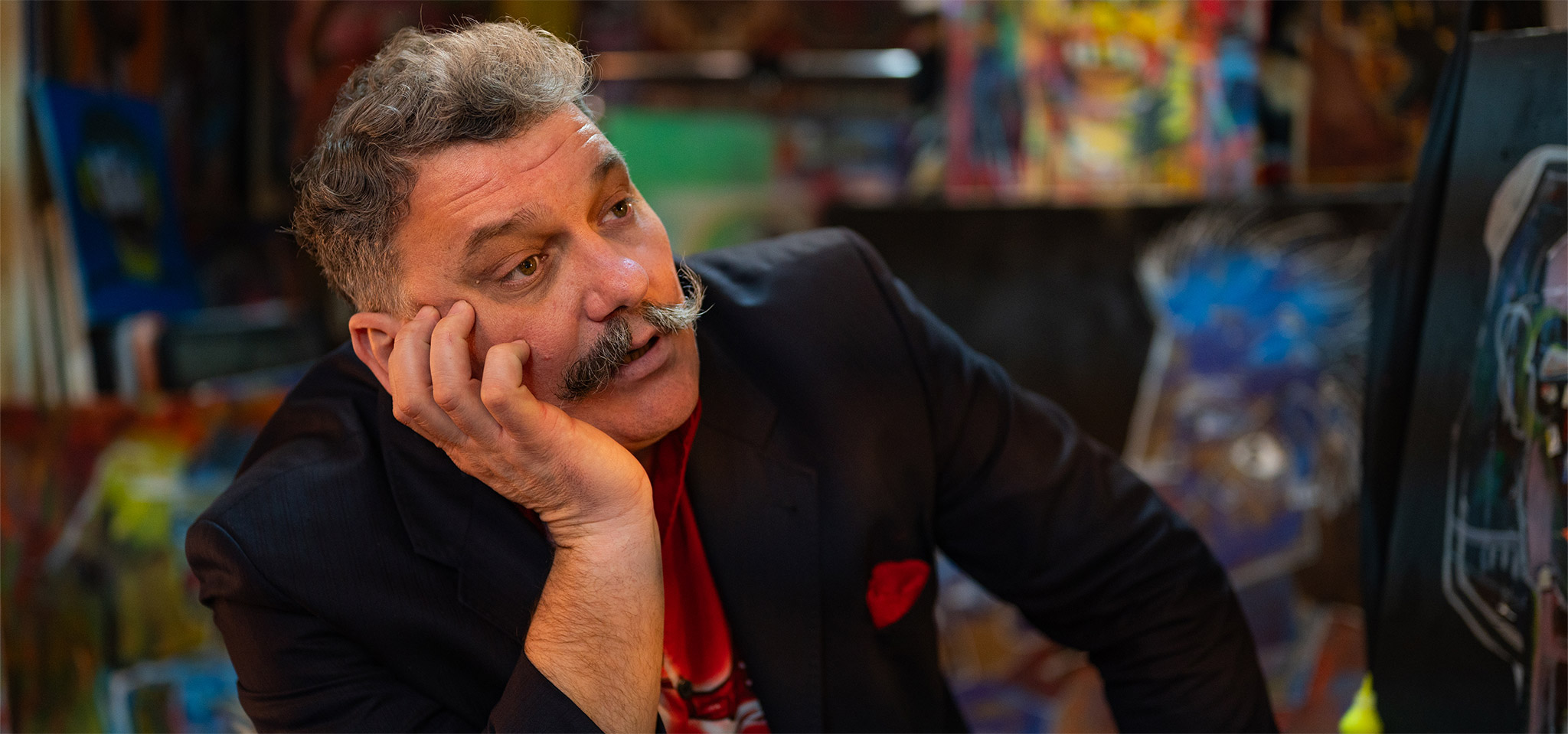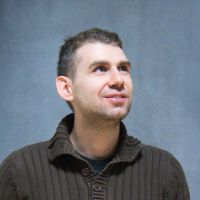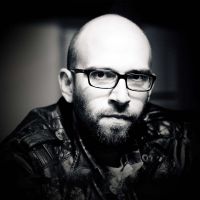Osman Ahmed: Art is my elixir of youth
Solve the association: Santa Claus, clown, painter, Multiethnic attraction, Blue bird. If you at least partially follow the local scene, it is clear to you that the correct answer is Osman Ahmed. In an interview for 011info, this multimedia artist recalls how he found his profession overnight and dedicated his life to entertaining children through animation, but also how he took up the brush and drumsticks, creating a rounded artistic whole in his life.
What are your earliest childhood memories?
Although I was born in Zrenjanin, I only spent a year or two there and don't remember much. Then we moved to Bačko Petrovo Selo, where my father was transferred. He was Sudanese, who came to Belgrade for studies during the Non-Aligned Movement era, where he met my mother.
Anyway, all my childhood memories are related to company. I regularly splashed around in the Tisa river and climbed trees with my peers. When pinball machines came to our town once or twice a year, they couldn't tear us away from the machines. Of course, there were also mischievous acts, like "snatching" watermelons from Banat and swimming back across the Tisa to shelter.
Also, I remember that my father was a passionate fisherman, and I admired his catches. Those moments are very dear to me, considering that I lost my dad early. However, memories of him still live on thanks to the people he helped as a diagnostician, who still remind me of that fact to this day.
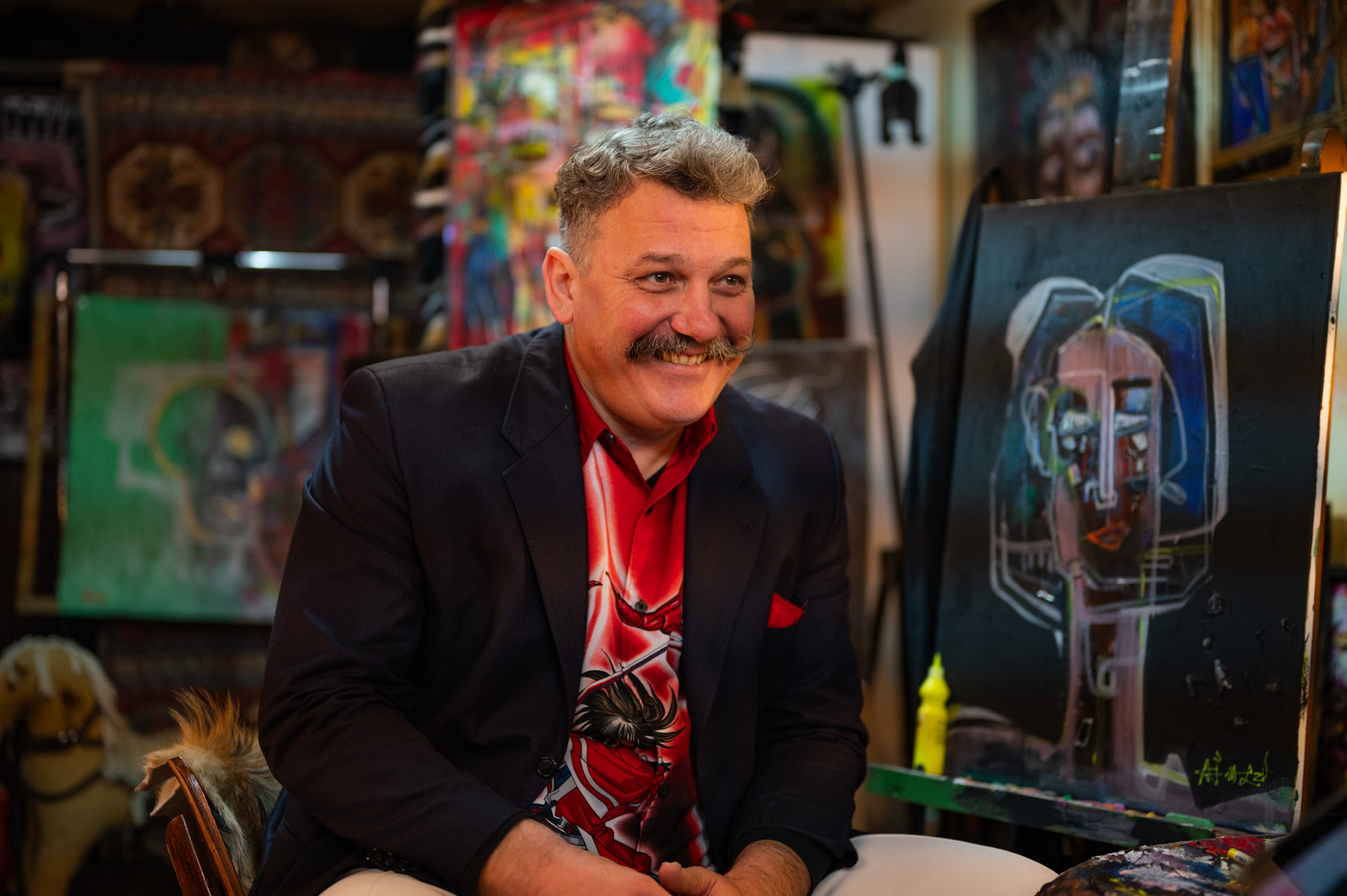
Have you had the opportunity to visit your father's homeland?
My father, who identified as Yugoslavian, I suppose didn't want to take us to Sudan because there were riots there, and it's still the case today. However, a few years ago, I felt the desire to visit that African country, but not as a tourist, by just hopping on a plane and flying there. Far from it.
Since I'm obsessed with "Mečka" (nickname for Mercedes cars), the plan is to "get hold of" Sudan with my faithful Mercedes E 250 and prove that, without repairs, a 35-year-old car can do it. Of course, I would document the whole adventure. However, such an endeavor requires financial resources that I don't have, but I firmly believe that such a story must be visually told.

When and how did you start entertaining children?
At the age of 6-7, I started playing soccer under the late legend Nađ Zoltan, nicknamed Čampika, and according to others, I was considered talented. Moreover, from that zero league, I reached the third, playing for Bajmok, and later for the youth team of Bečej, which was then playing in the first league. However, going to the army cut short all my football ambitions, although they predicted a serious career for me.
And then, on a snowy but sunny Friday in December 1998, I woke up and something just clicked in my head. I got up and said, "Enough is enough, I'm going to be Santa Claus!" And that's how it was.
Somehow, I managed to get a costume from elementary school and, without any preparation, performed for that New Year's in the kindergarten in Bačko Petrovo Selo. While entertaining and bringing smiles to the children and their parents there, it dawned on me that this could be my profession. I was convinced that I had found my calling, and I wasn't wrong.
And so I became Santa Claus, but shh! Santa's job is secret! Even my own children don't know - only my mother-in-law, who gladly washes and irons the costume, faithfully keeping my secret! (laughs)

Did the job of a clown follow suit?
Yes, that was somewhat of a logical sequence. At that time, I barely managed to get a costume and props - you couldn't buy a clown nose anywhere. Luckily, I didn't need one, because I painted it on, and it took that shape. (laughs)
Anyway, practice taught me that being a clown is about energy, not makeup and costumes, which your audience will feel. For example, today I wear minimal makeup. So, I'm neither a jester nor a court fool. Those are all artists. I'm a simple clown who believes in that role and, modestly speaking, always gives his all. If you don't behave and perform like that, you'll be 100% exposed by the children.
Moreover, the point is to make it fun for everyone. So, both for children and adults. When I enter, like the Terminator, I scan the crowd and locate the "mischievous" children, the "grumpy" grandmother in the corner, and if I manage to animate them, it becomes a memorable performance.
To achieve that, a template approach doesn't help. Hence my saying: "The more props I have, the more joyful my imagination is." They allow me to get out of trouble when a trick fails. But a lot of it is also due to 20 years of experience.
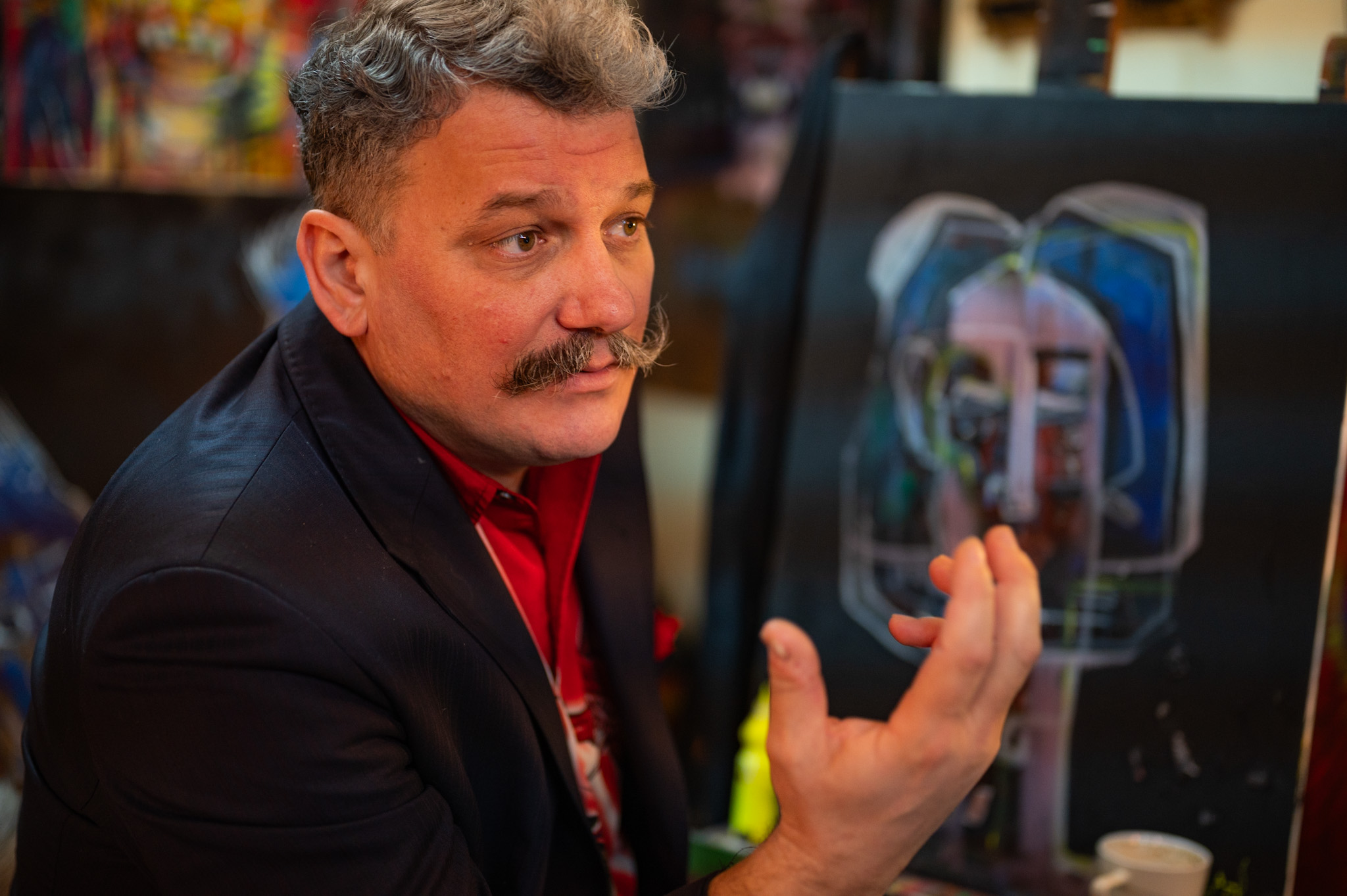
How valued is the clown profession in our country?
Look, although I've been working and living this career for almost a quarter of a century, it still isn't valued as it might be in America, France, Spain… Here, so-called "clowning jobs" are seen as some kind of "nonsense" - like anyone can do it.
Yes, anyone can put on makeup, and what then? Likewise, anyone can kick a soccer ball, but then let them become Ronaldo or Ronaldinho. As my colleagues know very well, whether you're a clown or Santa Claus, you have to live that character. When you put on that costume, you play that role, and there's no way out of it.
But we're all aware of where we live, and I'm a clown in every sense of the word.
However, your job is very responsible because you must never disappoint your young audience, not even when you're not feeling your best.
Extremely responsible, and, like anyone else, I have moments when I'm nervous or in a bad mood. However, clowning cannot suffer. You always have to be on point. So, when I have those moments, I count to three, put on the costume, apply the makeup, and that's it - I'm a clown, period.
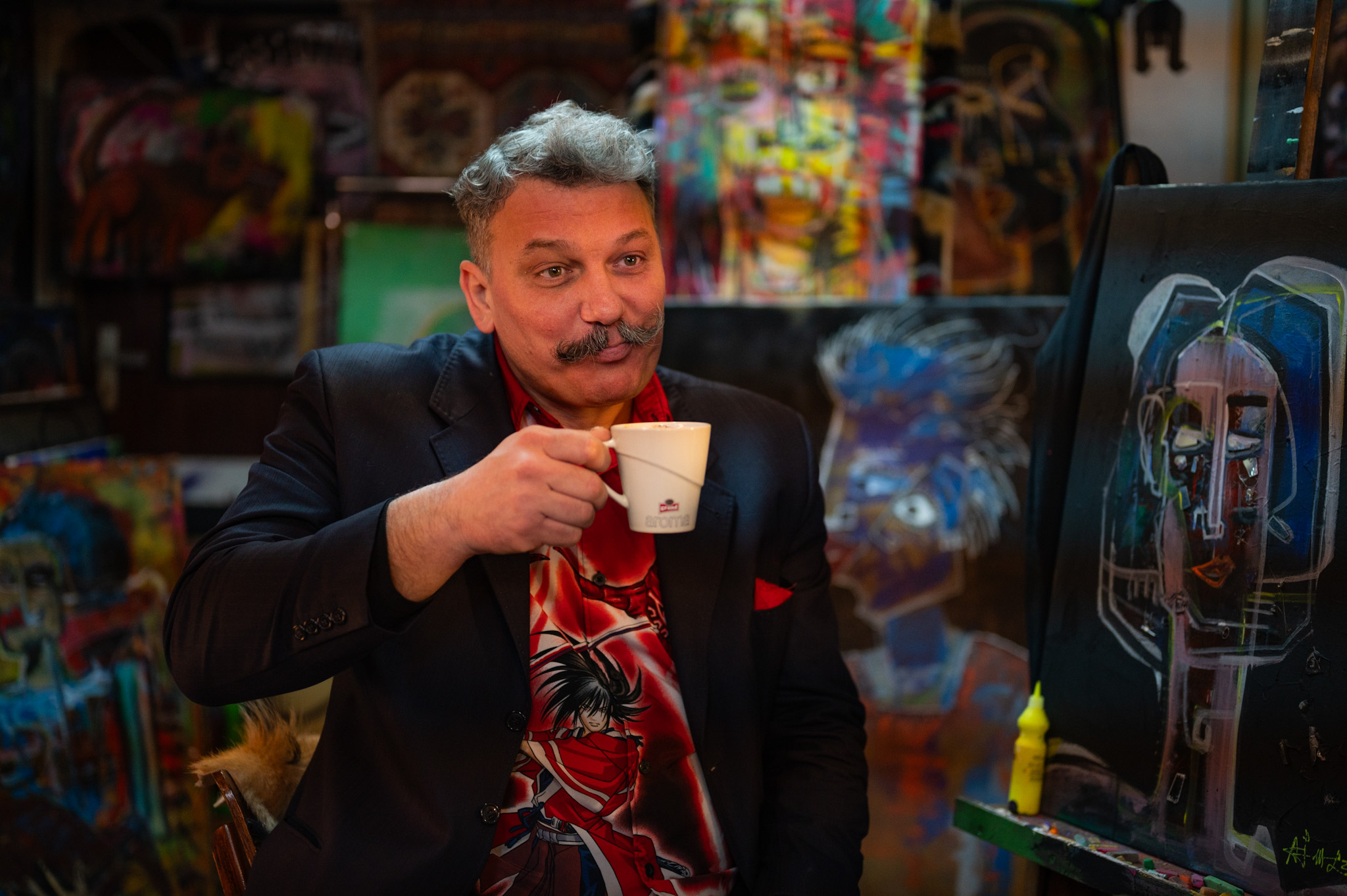
In addition to performing at parties, you also had performances at Belgrade hospitals.
That's right. I was part of a project by an American NGO, which hired us clowns and gave us the "title" of doctors who visit Belgrade hospitals trying to make the youngest patients smile. That's when I moved to Belgrade.
That was a job not everyone could do. Every time you see something that stings you. And just when you think you've seen everything, something surprises you again. At the same time, you realize that the things you get annoyed about every day are actually quite trivial. In fact, they're just silly.
During almost ten years of hospital visits, I've seen all sorts of things. Sometimes the children we've been hanging out with for months are no longer with us. And now you have to go in smiling, with a red nose, while they carry her or him out because under no circumstances can you break character. For heaven's sake, you're Dr. Clown, and you're there to heal with laughter. Truly poignant scenes.
On the brighter side, our performances undoubtedly had an impact. Although some doctors initially looked down on us, they soon noticed that our "fooling around" could "open up" a little child and enable the medical staff to do their job. Then they even let us in before the visit, which was really great. Moreover, certain doctors adopted some things from us and thus improved their approach when dealing with children.
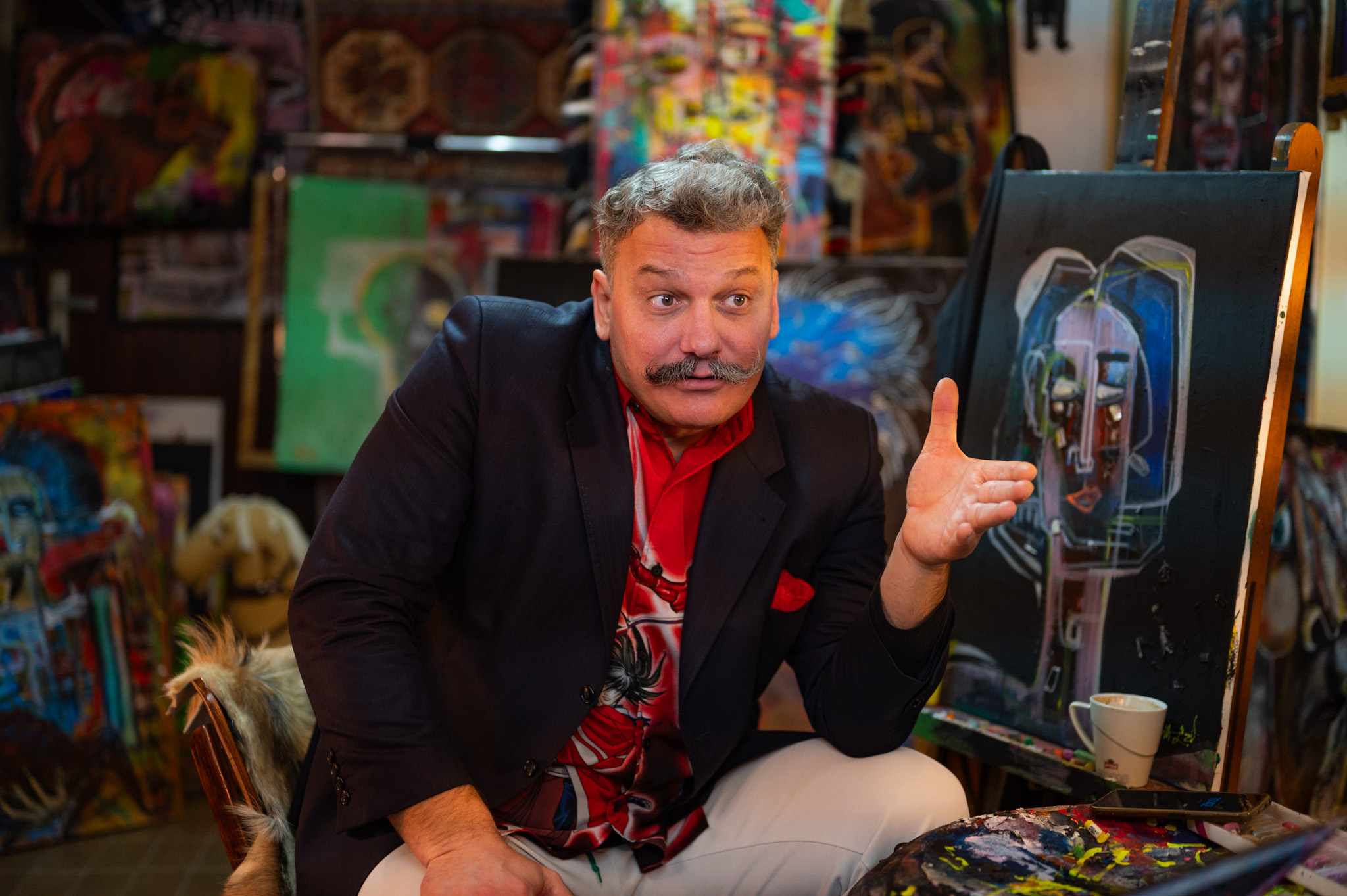
You mentioned you then moved to Belgrade. What was your first impression of the capital city?
Belgrade has always been part of my dreams. Yes, I wanted to go to America, but that's a wish for many. However, Belgrade and its spirit are something else entirely - lovelier. I was lucky to catch a glimpse of it because, as old Belgraders know very well, the former Belgrade and the one today are like night and day.
Also, I was lucky that my first "roommate" was none other than Dragiša Krunić, the author of "Majstorska radionica" (Master's Workshop), played by the bard of our theater, Zoran Radmilović. There's quite an interesting and humorous story behind that.
Namely, I was looking for accommodation, and by chance, I met Slavko Krunić, our famous painter. He told me to see his father. When I got to the house on Gospodar Vučić Street, Dragiša looked at me and said, "I like you, Osman. First rent is 100 euros and a goose!" (laughs)
What could I do? I went to Bačko Petrovo Selo and asked my mom to prepare a goose for me. She got one from "reliable sources" and sent me back to Belgrade. Dragiša happily slurped it up as soup, while reading his favorite newspaper, Danas, and welcomed me into his home. I lived upstairs, and he lived downstairs. I can't describe how glad I am to have known that man.
Even after he passed away, I continued to live there for another year or two. And one time, while "cooking" from the summer heat and waiting for the washing machine to spin the laundry, some papers fell on me from the top of it. I don't know where they came from, but my guess is that Draga, Dragiša's daughter, left them there. Anyway, it was a script for "Majstorska radionica". What a scene, right?!
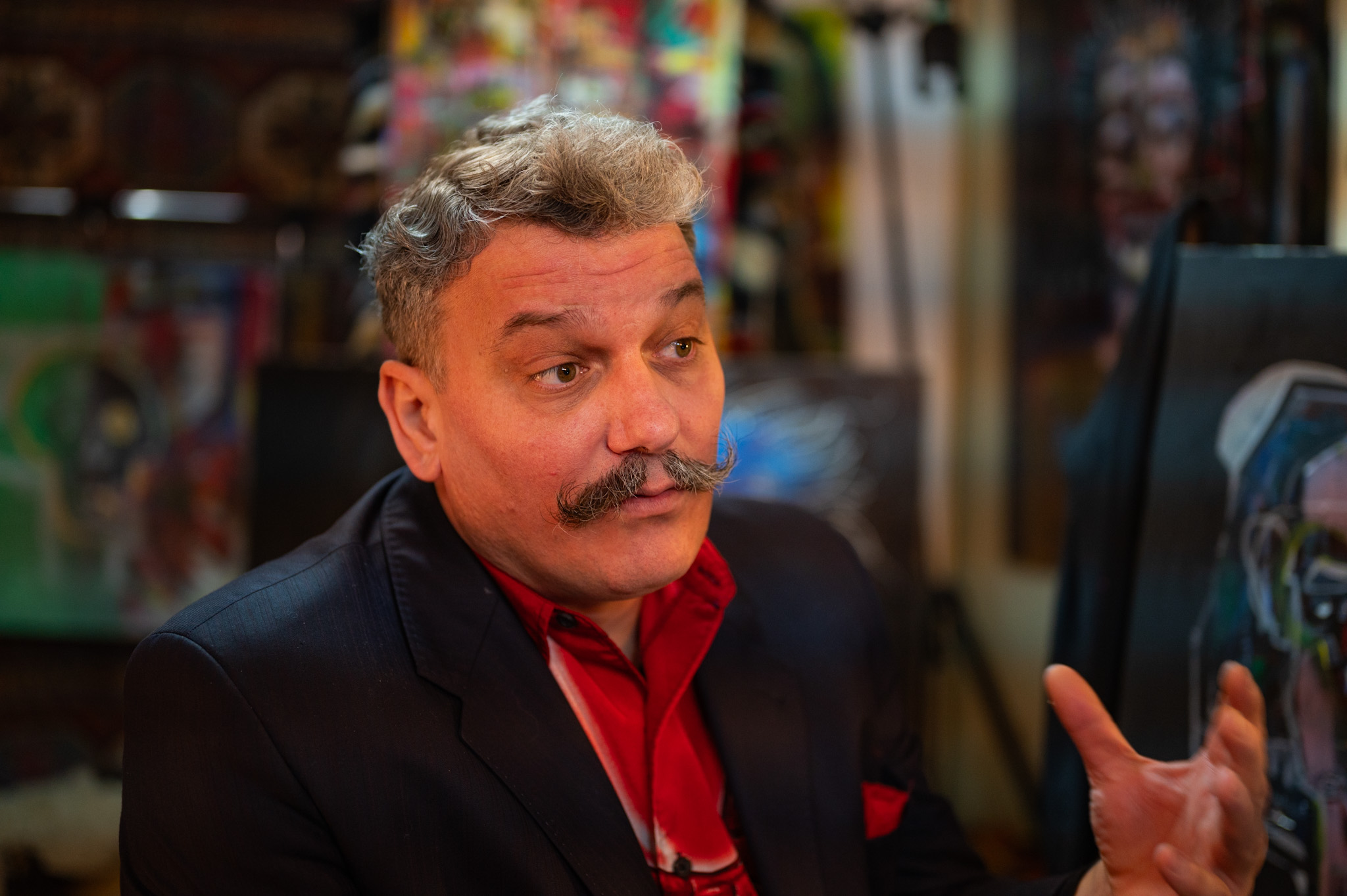
When it comes to television, you have been successfully hosting the children's show "Plava ptica" (Blue Bird) for many years.
Yes, it was initiated by the legendary Timotije Bajford. I believe "Plava ptica," where my colleague Borka Tomović and I are actor-presenters, is one of the few children's shows currently airing on TV, which is a huge shame.
When I reminisce about childhood, my generation had "Neven", "Poletarac", "Kocka, kocka, kockica", later "Metla bez drške", but also educational series like "Opstanak" (Survival). Nowadays, that's not so common.
However, we are fortunate that RTS recognized the importance of such shows for kids. We are now entering the 13th year of broadcasting, and the new season of "Plava ptica" airs in its regular time slot at 12:05 on RTS.
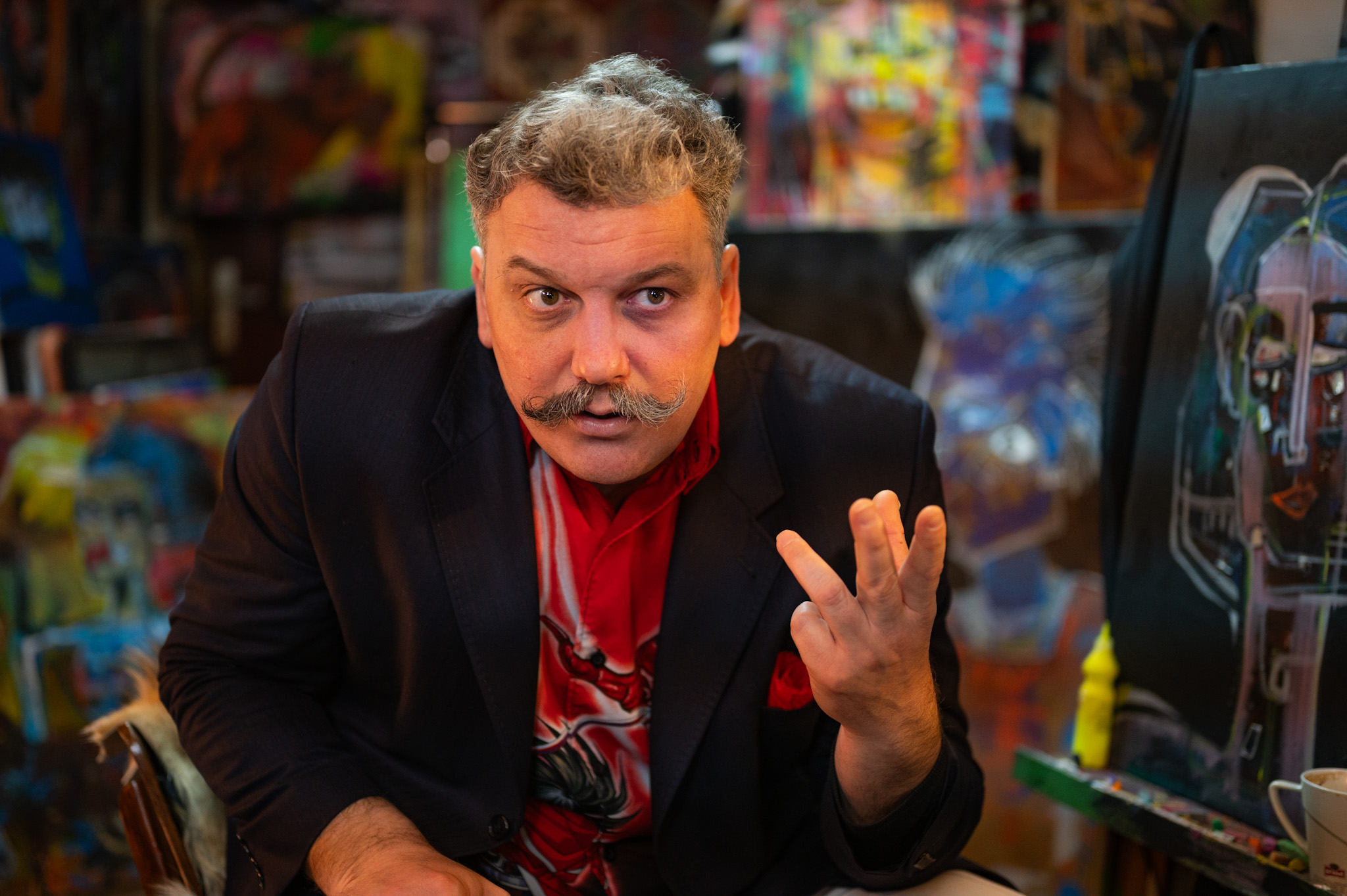
Apart from entertaining children, you also entertain adults with your band "Multientička atrakcija". When did music enter your life?
I started getting involved in music back in high school. Actually, I even had a band called "Televizor" (Television). Dressed in work uniforms, we played punk, our own songs. To be honest, we weren't that bad. We performed in Bačko Petrovo Selo and nearby places with relative success. In the meantime, music disappeared from my life.
However, it resurfaced at the turn of the millennium with Multientička atrakcija, which plays and sings about the other side of the coin of modern times. Let's be clear, it's heavy rock, underground of the underground, which you can't listen to "for long" and serves to "blow off steam" - release excess energy. And unlike the times when, for example, Hendrix and Doors performed, today's music needs to be seen to be listened to, which wasn't always the case.
All in all, music is a serious hobby from which I occasionally make some money, which is also a kind of relief from everyday duties. However, like with every role I play in life, I dedicate myself fully to each one. So when I'm a clown, then I'm a clown; when I'm Santa Claus, then I'm Santa Claus; when I'm a musician, then I'm a musician; when I'm a painter, then I'm a painter. There's no negotiation about that.
What is the creative process like for making music?
Look, I'm not a lyricist - I never have been and never will be. Everything I create happens in a moment of inspiration. For example, the song "Veliki grad" (Big City) was composed and written one September or October night near Hotel Moskva. It was about two o'clock after midnight, and I was walking home because I missed the bus. The quiet and calm city stirred up some words and rhythm in me instantly. I grabbed my phone and recorded it right away. And that's how the song dedicated to Belgrade was born.
The same goes for painting. Recently, when I was going to bed, I saw a shadow of a coat, with a hat, which was actually a child's cap. And suddenly it struck me - a man in a coat, with a hat, sitting in the dark holding a drink as a motif for a painting. Now it's just a matter of time before I paint it.
Basically, that's how my creative process looks like.
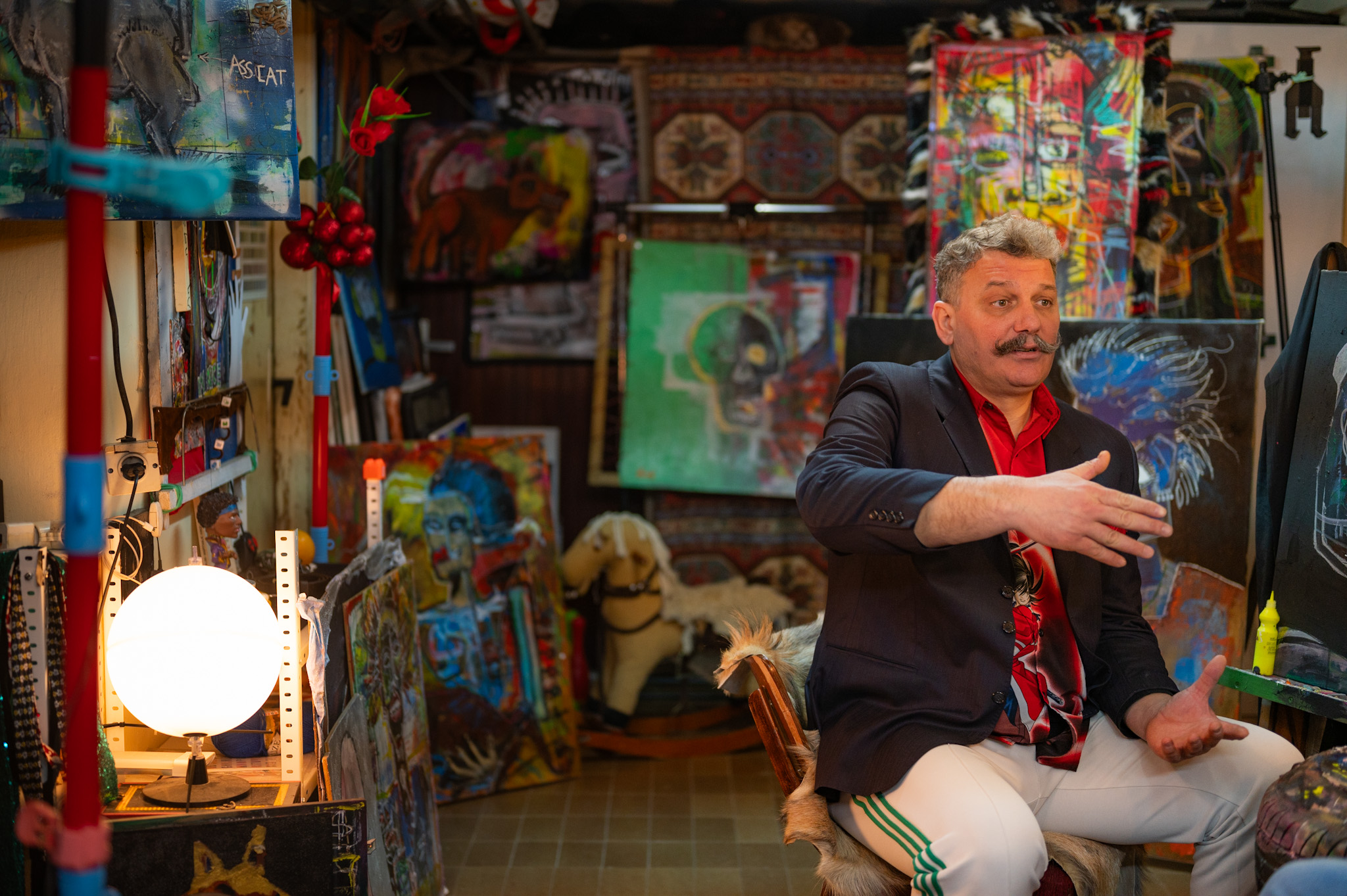
You mentioned painting. When did you pick up the brush?
That was at the beginning of the new millennium, when I was getting to know the works of giants like Picasso, Van Gogh, and Dali more seriously. I tried to apply to some art schools, but I always fell below the "cut-off." I guess they breathed a sigh of relief when they saw I didn't have enough points to get in. (laughs)
When I moved to Belgrade, I loved painting with car lacquers on Knez Mihailova Street. I would dress in a sailor shirt, fix my mustache and hair, and sit there painting, which the municipal police didn't approve of. I had about an hour and a half to two hours of freedom to create, and then the authorities would chase me away. Still, those pieces sold, and I managed to go on vacation to Greece with the earnings, where some "masters of their craft" robbed me along with the rest of the train. (laughs)
And about two or two and a half years ago, it came back to me – I took a brush and started painting again. Essentially, through those works, I let out everything I can't express through animation or music.
Have you had any exhibitions so far?
Two, actually. One was last autumn in Bačka Topola, and then in Bečej. After them, I realized I don't have to exhibit my works at all costs. Because what's the goal of an exhibition? To sell the pieces. Who buys artwork now? Hardly anyone. The 80s are gone. Nowadays, people don't have enough for a normal life, let alone for a painting. On the other hand, each piece costs because it's unique, handmade. So, I paint for personal satisfaction.
By the way, my mother-in-law likes to joke about my painting endeavors. Last year she caught me in the studio staring at a painting, contemplating how to adjust a line. When she asked me what I was doing, I explained it to her in detail. She just shook her head, turned around, and left. I took it as a gesture of support. (laughs)
Ultimately, whether I animate, play music, or paint, whatever I do, that work is my fountain of youth.
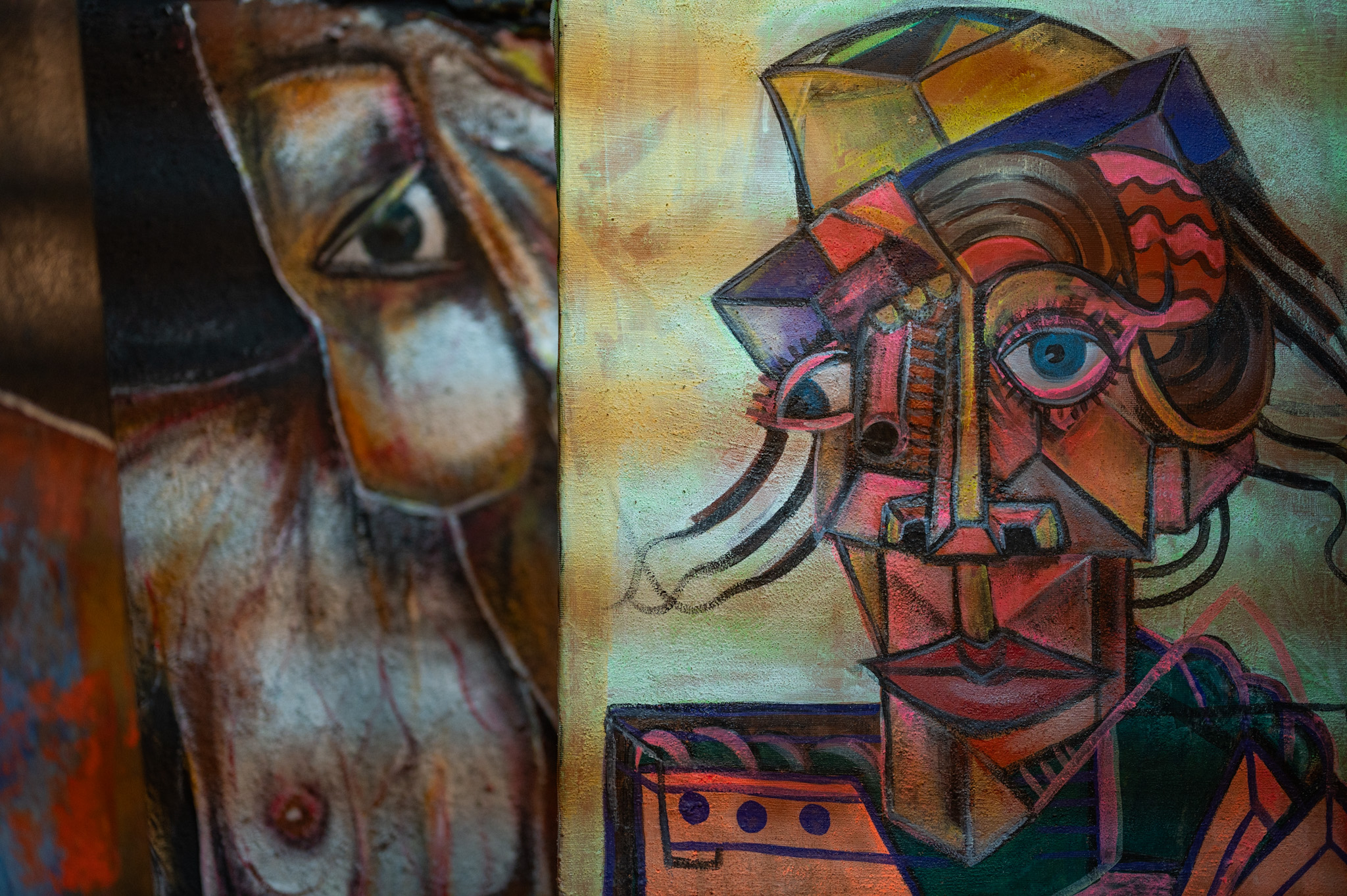
You're an artist, as is your wife Aleksandra, who is a brilliant actress. Do your heirs show an affinity for art?
Our older son, Ilija, appeared in several commercials and acted in the film "Ime naroda" (Name of the People) by Darko Bajić. Now his focus is more on drums and percussion. Our younger son, Jakov, has been painting since he was in diapers, and he loves it. I'm incredibly happy that both of them express themselves creatively like that.
But the realist in me would say that it's doomed to "failure" because art here, and in the world, isn't warmly embraced. Actually, art is seen as some kind of "pastime," but if someone approaches that "pastime" with all their being, it becomes their vocation. Putting all that aside, both my wife and I support them in whatever they want to do in life.
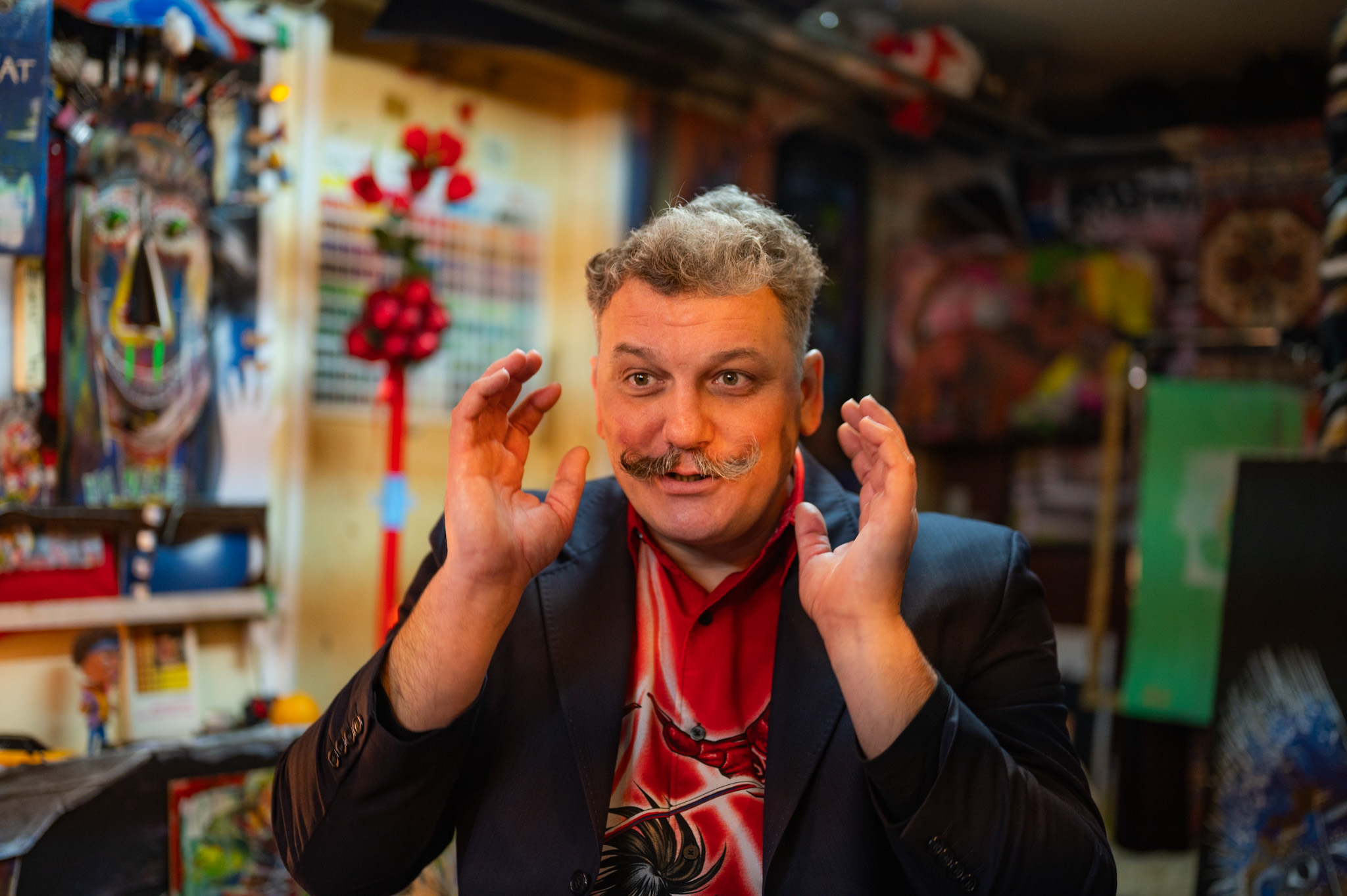
What are your plans for the future?
When it comes to painting, I'll continue creating with all possible techniques, enough to fill two, three, five containers, and when I'm gone, the kids will get the keys to them and do whatever they want. Why? Because, in my time on this earthly sphere, I don't believe I'll ascend to the "painting heavens." Hence, I've dubbed the whole collection "Dead Art." And, on the contrary, I have no intention of stopping creating.
As for music, we'll continue as usual, playing wherever we're invited. We certainly enjoy it. We would love to perform in Las Vegas, but it seems like it's not going to happen. (laughs)
As for the clowning business, I want to learn more new things and gain even more experience. Otherwise, if I stagnate, then I'll pack everything up and retire. But that won't happen. Yes, sometimes I'm overwhelmed, but that passes after a few days, and that same excitement returns. Simply put, I see myself as a servant of these callings, and I'm happy. And I really don't care whether someone buys a painting or not, whether someone comes to a gig or not, or how many kids I perform for. I'm 300% in all of it, and in the end, I feel rejuvenated by all of it.




 6 ℃
6 ℃

